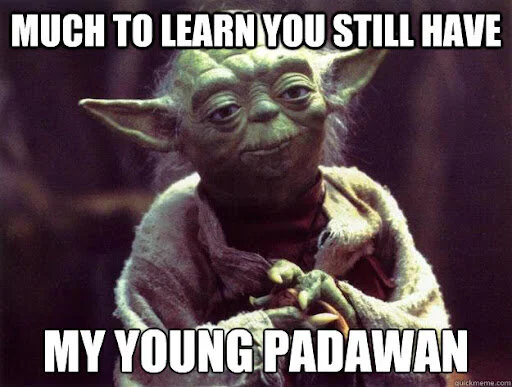How to Teach Data Engineering
Frequently we receive positive comments about our curriculum and our general approach to data engineering, especially in the light of the hype vs. the realness that surrounds it. However, the selected content would be ineffective and empty for our students without the right delivery. Selecting the fitting pedagogical approach and combining it with the most effective didactical methods are key to running a successful course, so here are the whys and hows behind what a Pipeline Academy student is dealing with at the bootcamp.
As pointed out when talking about data engineering portfolio projects, not having best practices in place forces you start from scratch and figure out yourself what would make sense in terms of teaching this constantly evolving subject matter. But what can go wrong — you ask?
Well, it might happen that the learning process is simply ineffective, and you just don't get the gist.
You might leave a school and realize that whatever you've learned is totally detached from real life, and you as a result fail to connect the dots and the "career kickstart" does not happen.
Potentially you could lose interest during the course and drop out.
Not being upfront and honest about the learning process and what kind of engagement and mental effort studying takes from students can be extremely misleading, and is something that we see a lot of coding bootcamps struggle with.
Making sure people can access the course fairly easily independently from their socioeconomic background is also something we talk about a lot internally.
On top of this, data engineering is kind of a special case: you have to have strong principles and fundamentals to be able to tackle random incoming unstructured tasks and issues when working as a data engineer, and they do help when you're trying to maintain your sanity in general. This becomes very clear when you realise that a controlled environment is rarely something that these professionals deal with, and accepting this is an essential step in the right direction.
So you need some experience and the attitude to get it right, and design a meaningful and engaging learning experience - a pedagogy market fit.

Daniel + Zoom + Chewbacca mask
Not our first rodeo
I have spent over seven years in the e-learning industry. I have worked in higher education, in vocational education and have contributed to the digitalisation of the traditional school system's teaching methodologies. I've presented conference papers on learning theory and practice at conferences like Online Educa Berlin (2004, 2005) and Microlearning Innsbruck (2006) on connectivism, on edutainment and on social software like wikis.
The other co-founder and career coach at Pipeline Academy, Peter holds a double-degree in business administration and teaching, and he has taught marketing research at his alma mater while studying there. He has worked in various environments mentoring and supporting junior talent and helped navigate them through the realm of emerging technologies and the related competencies. He has been in charge of one of the world's top rated data science bootcamps and has coached various students transitioning to the field of data and supported them in the process of finding jobs and leveling up their careers.
I guess it's safe to say that we're professionally well-equipped to make the curriculum work for our students, but it's crucial to follow the latest research and digital tools in order to succeed on the long run.
Pedagogical concept
Contextual learning is based on the constructivist theory of teaching and learning. Learning takes place when teachers are able to present information in such a way that students are able to construct meaning based on their own experiences.
Contextual learning has the following characteristics:
emphasizing problem solving,
recognizing that teaching and learning need to occur in multiple contexts,
assisting students in learning how to monitor their learning and thereby become self-regulated learners,
anchoring teaching in the diverse life context of students,
encouraging students to learn from each other,
employing authentic assessment.
As opposed to the more traditional "I'll show you how it's done, repeat after me, now you should be able to do it too"-kind of teaching and learning environment — not that there is anything wrong with that when used in the appropriate context.
Why constructivism? The answer is easy: engineering is about solving problems. Data engineering is about solving (mostly) unstructured problems while filtering the massive hype around tooling and the ecosystem in general. There will be no handbooks, only a compass and a map. You have to build yourself an internal tool for navigating, while we help you sketch your interpretation of the world; that's the best you can do.
Every interaction (or the lack of it) permeates the curriculum with these paradigms. Assignments, teamwork and learning to fail and try again. That will be it. We've tried and tested this approach: it's tough and it works.
Trust the process.
Based on the experience of ourselves and our graduates we think these are the major considerations you should take when thinking about whether we are the right choice for you:
The bootcamp is hands-on, effort and outcome oriented.
You have to write code.
We will emulate real-life work scenarios.
You will solve problems.
You have to take the initiative.
We'll engage you in frontal instruction, solo assignments, research, working in pairs and teams, and you'll be presenting and explaining concepts and tools to others.
Standups, retros, open tickets, open Pull Requests are bread and butter for us.
You'll prepare for job interviews by answering practical questions and solving very real coding challenges.
Sync and async communication will happen all the time on Slack and Zoom.
You will report bugs with context, describe your attempts to resolve the situation, you will practice asking for help efficiently.
This is not a simulation bubble, this is entropy itself.
Things will break as its their nature.
You might have to reinstall your computer once or twice.
From time to time, you'll curse — and that's totally ok: "This is not a pop album" as Ice-T pointed out oh-so wisely in Warning.

If you are up for the fun, this is what you'll end up with when graduating from Pipeline Academy:
Confidence: you'll realize that the invested amount of curious exploration, the effort put into trying again over and over, your continuous attempt at connecting the dots between what makes sense vs. what you are told, and the work spent collaborating with others correlates directly with your self-confidence for your job interviews and your future career. We provide the stage, but the show is about you.
Context: are you intimidated when checking out data engineer job descriptions, because they are full of seemingly random tools you've never heard of? Assessing and benchmarking them, using them and learning their quirks will enable you to deal with most of the data stacks out there, even the ones that don't exist yet.
Code you own: as a data engineer, your code will most likely be looked at when applying for a job. Proving the right competencies and attitude with the work you've delivered will feel rewarding and will make you stand out.